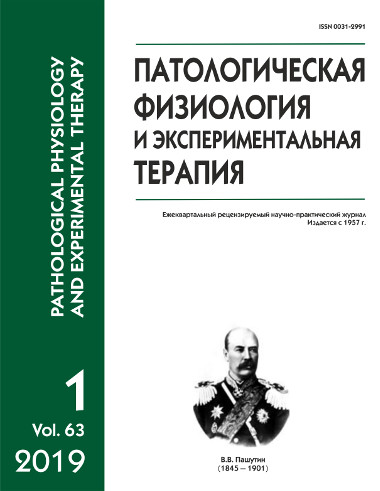An experimental model of gestosis in rats
Abstract
Gestosis remains one of the main problems in obstetrics. Due to the invasiveness and unethicality of most methods for studying tissues of the fetoplacental complex, searching for adequate experimental models of gestosis is a relevant challenge of modern pharmacology. The aim of the study was to experimentally substantiate the use of Nω-nitro-L-arginine, the NO synthase inhibitor, to model gestosis in rats for pre-clinical study of candidate substances for the treatment and prevention of gestosis and placental dysfunction. Methods. Experimental gestosis was induced in rats with the NO-synthase inhibitor, Nω-nitro-L-arginine (50 mg/kg s.c., from day 13 to day 19 of gestation). Results. Nω-nitro-L-arginine induced hypertension; proteinuria; an increase in serum endothelin level; damage to the placenta, uterus, liver, and kidney, which led to placental dysfunction; and renal and hepatic impairment. The multisystemic changes impaired the fetal development, which was evident as a delay in fetus growth and maturation, weight loss, and decreased cranio-caudal size. Conclusion. The obtained results comply with the clinical and morphological picture of gestosis, which justifies using this experimental model in pre-clinical studies of the substances intended for treatment and prevention of this disease.






